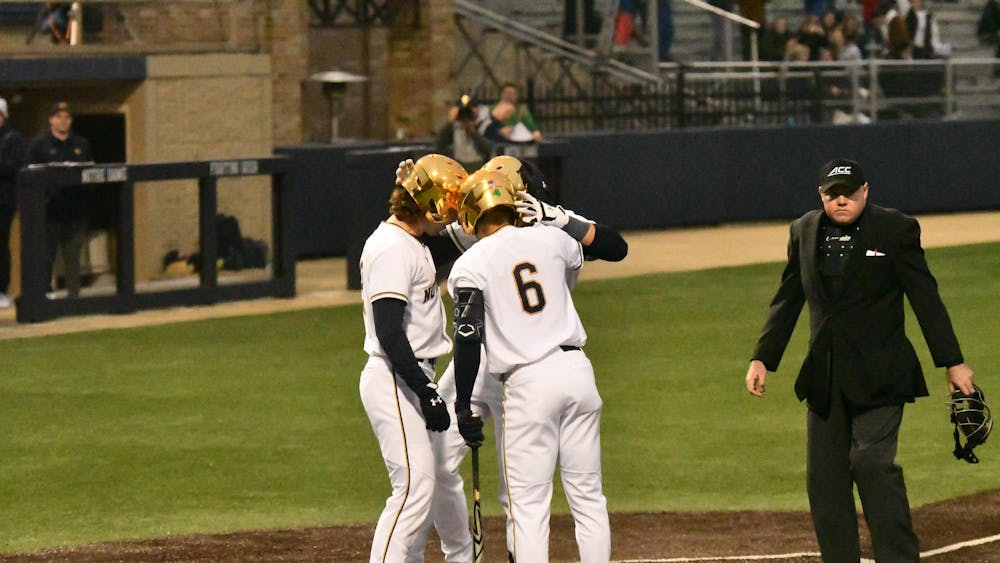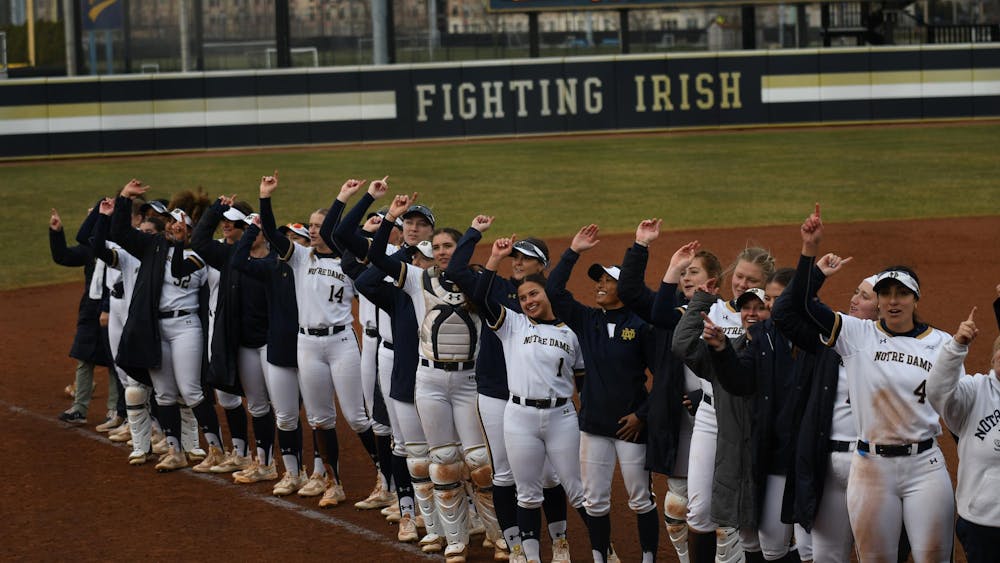It’s August, and that means it’s the most wonderful time of the year.
If you know me, even in the slightest, you’ll know I’m a soccer nerd — one step into my room with a wall adorned by scarves should tell you that pretty well.
And on the whole, becoming a diehard fan has been an interesting transition for someone who grew up with the stereotypical American dislike of the sport — be it its low-scoring, seemingly-uninteresting games, the “flopping” on the pitch— known to soccer fans as diving — or any of the other things in the long litany of complaints so many fans have of the sport.
As a toddler, my parents enrolled me in a youth soccer league, as is tradition in suburban America. It’s the perfect sport at that age; run around, aimlessly kick the ball in the general direction of the tiny, unmanned goal and blow off some steam in a controlled environment rather than in the house. Apparently I hated it. For 10 years of my life, I didn’t kick a soccer ball. The sport was dead to me.
But then a funny thing happened five years ago: I realized soccer is the greatest drama the sports world will ever have to offer us.
The year was 2010, which mean it was a World Cup year. Such years are special; they feature the most important event the sports world has to offer, when 32 countries gather to assert soccer dominance. I figured, “Hey, I’m a sports fan, and want something to do in the late mornings and early afternoons of an otherwise boring summer, so I might as well tune into the World Cup.”
And never mind the United States had no chance of winning the tournament — which is an anomaly in most sports that aren’t soccer, rugby or cricket — I wanted to tune into the world’s biggest sporting event. I figured it’d be a fun way to kill time and to see some of the funny passion that comes along with soccer, from the vuvuzelas that popped up in South Africa to the massive contingent of Dutch supporters who travel to every World Cup, more to simply party than to watch their Oranje play.
The realization? That passion wasn’t “funny,” and the compelling story of that year’s American team made me realize that deep down, I had some of that.
The Yanks were drawn together with England, Slovenia and Algeria that year; a middlingly-good “powerhouse” and a couple of not-very-good countries who the U.S. was expected to beat. But after a 1-1 draw with England, the American side fell into a 2-0 hole against Slovenia. It was panic mode; this was supposed to be easy.
But they fought back. Down two goals, the Americans clawed back to force a 2-2 draw that should’ve been a win — referee Koman Coulibaly (yes, I remember his name, and I’m never going to forget it) denied the U.S. a late winner, and for the first time, I got angry about a soccer match.
When Landon Donovan scored his now-famous winner against Algeria to send the Yanks through to the Round of 16, I ran around my bedroom like a bumbling buffoon. I was in love.
Since then, I’ve dived in. Sure, I have my clubs I’m passionate about, Aston Villa the most prominent, but it’s also a beautiful thing to watch from afar.
More than any sport we’re familiar with here in the States, soccer (er, football) means everything to so many people. The reason? It’s a numbers game.
Where we have four major professional sports leagues as well as major collegiate sports, rugby and cricket are the second- and third-fiddle sports to association football in England — and that story resonates clear around the world.
There’s a high level of saturation when it comes to sports in America, and that’s great. But it also lets us shrug off a loss by one of our favorite teams, because hopefully one of the other ones took home a win.
That doesn’t exist in the soccer world.
So maybe the next time you deride soccer as “boring,” take a look at the story off the pitch. It’s sometimes more compelling and beautiful than the game itself.













